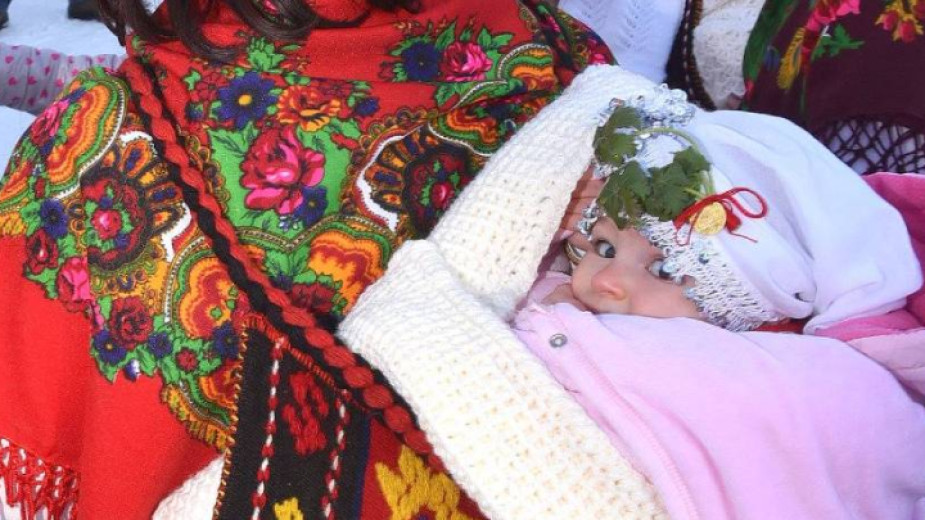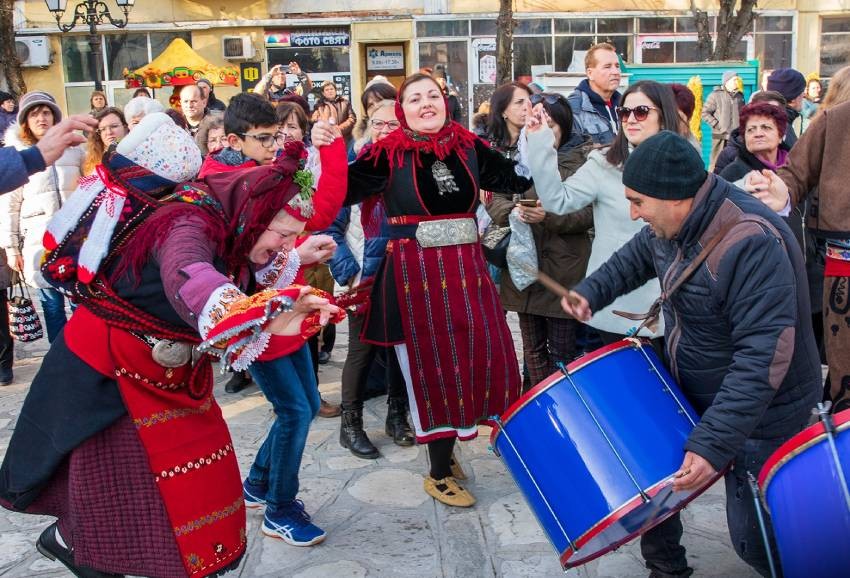 13
13
At the beginning of each year, The Bulgarian city of Razlog and the surrounding villages start feverish preparations for Babinden or Midwives’ Day. The holiday is dedicated to the “grannies” who helped women give birth. Every year it is celebrated on January 21. In Razlog it is among the most revered folk customs. There is no exact information when the tradition emerged in the city, but according to the descriptions of a local historian, the elders passed on their memories to the younger ones and thus preserved the tradition from generation to generation.
"Preparation, of course, starts much earlier," Hristina Manova from the Regional History Museum in Razlog says in an interview with Radio Bulgaria.
"Several months in advance, special clothes are sewn for the child or the baby. Also, the heavy festive costume for the midwife, which has been preserved for many years, is prepared. There is a specific costume that the midwife wears on this day. A metal ornament called tepelak is placed on the head and the headscarf is placed over it."

The feeling of wearing the festive folk costume is indescribable, says Hristina Manova, who wishes everyone to have the chance to experience this joy.
"The women who continue to wear folk costumes to this day radiate festiveness and solemnity. And we hope that this tradition will be preserved, because it is the thing that brings people back to the past, to their roots, and this helps build the future, as well."

The ritual begins with pouring water out for the granny who used to help with the birth of the children, so she can wash her hands. According to tradition, the young mother, together with her mother-in-law, go to the midwife to ritually wash her hands with clear water from the Pirin Mountain, poured into a clay vessel with a special decoration:

"All this is accompanied by special words with which the midwife sends wishes to the child,” Hristina Manova says and adds: “The young mother presents the granny with a cloth, a scarf, a bar of soap and other interesting gifts. In turn, the granny presents the little child with socks that she has knitted - red if it's a girl and blue if it's a boy. After that, the second part of the custom starts. This is the granny horo dance, as all grandmothers with grandchildren born after January 21 of the previous year, gather in the town square."

The dance is a special one as grandmothers dance carrying their grandchildren in a cloth on their backs and utter certain ritual words and wishes. This tradition, preserved to this day, pays special respect to grandmothers in Razlog, unites families and preserves traditional values. In recent years, grandfathers have also been included in the celebrations.

"Regardless of what the weather is like, whether it's cold or rainy, it doesn't matter,” Hristina Manova says. “All grandmothers with grandchildren participate in the horo dance, and so far not a single child has fallen ill because of Babinden. And this year the preparations are in full force and I want to invite all Radio Bulgaria listeners on January 21 to Babinden in Razlog."
English publication: Al. MarkovPhotos: Facebook/ Bulgarian roots, Municipality of Razlog
Wine will spout from two drinking fountains over the weekend in Delchevo. Perched on top of the mountain, the village located close to Gotse Delchev, has made a name for itself as a tourist attraction with its ancient architecture and the beautiful..
The Surva festival begins with the lighting of bonfires and mummers dancing the horo chain danie around the fires on the night of January 13-14. The power and timelessness of the masquerade tradition has led UNESCO to declare it a World Heritage..
Mummers from the neighborhoods of Bulgaria's town of Blagoevgrad, the neighboring villages and guests from Petrich paraded at a carnival in the regional town, as the sounds of hundreds of bells filled the town. For yet another year, the Mummers'..

+359 2 9336 661
